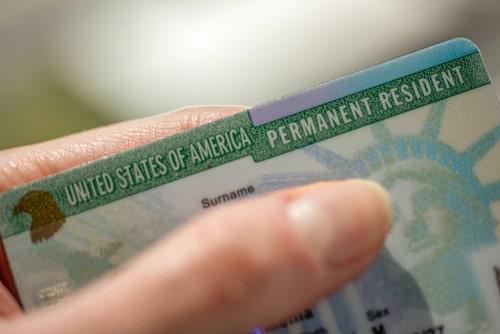Adjustment of Status and Consular Processing: What Is the Difference?
 Understanding the differences between adjustment of status and consular processing is an important part of navigating the immigration process. Both options involve filing an application for a green card, but there are a few key differences that could make one option more suitable than the other depending on a person's specific circumstances. Immigrants and their family members can determine the proper steps to take by working with an attorney who is experienced in immigration law.
Understanding the differences between adjustment of status and consular processing is an important part of navigating the immigration process. Both options involve filing an application for a green card, but there are a few key differences that could make one option more suitable than the other depending on a person's specific circumstances. Immigrants and their family members can determine the proper steps to take by working with an attorney who is experienced in immigration law.
What Is Adjustment of Status?
Adjustment of status (AOS) is the process by which an immigrant may apply for a green card while already in the United States. It allows immigrants who have entered the country legally or, in some cases, those who have overstayed their visa to submit an application for lawful permanent resident (LPR) status without leaving the country.
To be eligible for AOS, an immigrant must either have entered the U.S. lawfully or be eligible for a waiver of inadmissibility. In family-based immigration cases, a person must have a qualifying relative who is already a U.S. citizen or lawful permanent resident who is willing to sponsor them in their green card application process. In employment-based immigration cases, a person will need to receive sponsorship from a U.S. employer. If all requirements have been met, a person can file an I-485 form with USCIS (United States Citizenship and Immigration Services) and begin the adjustment of status process while remaining in the United States.
Once an immigrant has applied for AOS, they will go through a series of interviews with USCIS. During these interviews, they will need to provide evidence proving that they qualify for LPR status based on the petition category under which they are applying. Once all interviews have been successfully completed, and a person's application for adjustment of status has been approved, they will typically receive their green card within several weeks.
What Is Consular Processing?
Consular processing is a way for immigrants to obtain LPR status from outside of the United States. If an individual is currently living in another country, this may be their best option for obtaining a green card that will allow them to live permanently in the United States. The application process begins when a U.S. citizen or lawful permanent resident files a visa petition on behalf of the applicant via form I-130 (for family members) or I-140 (for employers). Once approved by USCIS, the application will be sent to the National Visa Center (NVC). An applicant will be required to submit all supporting documents requested by NVC, and they will be scheduled for an interview at a U.S. embassy or consulate abroad. If an application is approved, and a visa is issued, an applicant will be able to enter the United States as a permanent resident with their newly issued green card.
Contact Our Dallas Green Card Lawyer
Adjustment of status and consular processing are two different paths available to those who are seeking lawful permanent residence in the United States. Each path has its own set of requirements and steps that must be taken in order for an individual to successfully obtain LPR status. If you are considering applying for a green card, the experienced Plano adjustment of status and consular processing attorney at Law Office of Jae Lee can help you determine which option would work best in your particular case. We will ensure that your application will be handled correctly and efficiently so that you get one step closer to achieving your goal of becoming a lawful permanent resident of the U.S. Contact our firm at 214-799-5062 to set up a free consultation today.
Sources:
https://www.uscis.gov/green-card/green-card-processes-and-procedures/adjustment-of-status
https://www.uscis.gov/green-card/green-card-processes-and-procedures/consular-processing






